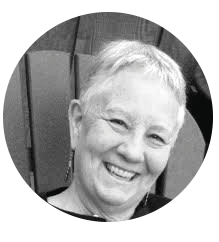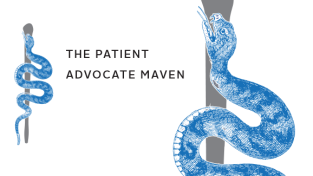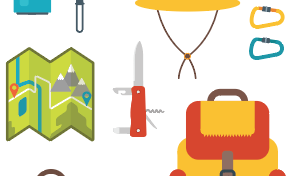The Maven: Sharing Your Wishes

These days, with apologies to Tina Turner, I’ve been asking myself, “What’s death got to do with it?” You can’t pick up a newspaper or magazine without encountering advice about preparing for death or documenting your end-of-life wishes. Are we starting at the wrong end of life’s stick? Is our preoccupation with legal documents misplaced . . . or at best premature?
Form or Friend?
Since the late 1970s, when living wills appeared on the medical landscape, we’ve been pressured to document our end-of-life wishes. There’s even a federal law, the Patient Self-Determination Act, which requires hospitals to ask us, upon admission, “Do you have an advance directive?” They are referring to a legal document that indicates a person’s wishes with respect to future health care in the event that they are unable to communicate.
Ask physicians and other health care professionals, “What best helps you when caring for patients who can’t speak for themselves, having a completed set of documents on file or having a person on hand who knows the patient’s wishes, who has discussed over time what matters to them, and (ideally) who is authorized to make decisions?” Hands down they’ll tell you it’s the latter. Above all, each of us needs a health care companion throughout our lives.
The Young People in Our Lives
Many of us may have completed our advance directives and shared them with family and friends. We might even have had conversations about our later-in-life wishes, though some of our younger family members might not share our enthusiasm for such conversations.
Yet how many of us know the health care wishes of the young people in our lives? Have we asked? My late husband’s kidney donor was a seventeen-year-old who had been in a mountain-biking accident. He had checked “organ donor” on his driver’s license, but he and his family hadn’t ever talked about what that really meant to him.
Throughout our lives, risks and responsibilities around health care change. We should encourage everyone, from mid-adolescence on, to find a health care companion and talk with them about health care values and wishes.
Talk. Listen. Now.
What we’ve learned since those early days of advance directives is this:
1. The need for health care and quality-of-life decisions can and will arise throughout our lives.
2. Most health care decisions are not end-of-life decisions. They are, however, quality-of-life and lifestyle decisions.
3. If we learn how to make good health care decisions early on, we are better prepared for later, serious decisions. The emergency room and intensive care unit are poor places to start. Let’s grow a generation of skilled health care decision makers, from mid-adolescence on.
4. The most important planning piece is talking with a health care companion about our health care wishes, throughout our lives, not just as we approach the end. Keep a card in your wallet with your health care companion’s contact information. Urge others to do so as well.
—By Joan McIver Gibson ’65
 Joan McIver Gibson PhD ’65 is a philosopher, bioethicist, ethics consultant, and trainer. She founded and directed the Joan Gibson Health Sciences Ethics Certificate Program at the University of New Mexico (UNM), and for twenty years she chaired a hospital ethics committee in Albuquerque. She worked on New Mexico’s living will law in the 1970s. In the 1980s she and colleagues at UNM created the values history form, the precursor to values-based advance directives such as Five Wishes, a legal document that in the event of a patient’s inability to communicate, considers a patient’s personal, emotional, and spiritual needs as well as their medical wishes.
Joan McIver Gibson PhD ’65 is a philosopher, bioethicist, ethics consultant, and trainer. She founded and directed the Joan Gibson Health Sciences Ethics Certificate Program at the University of New Mexico (UNM), and for twenty years she chaired a hospital ethics committee in Albuquerque. She worked on New Mexico’s living will law in the 1970s. In the 1980s she and colleagues at UNM created the values history form, the precursor to values-based advance directives such as Five Wishes, a legal document that in the event of a patient’s inability to communicate, considers a patient’s personal, emotional, and spiritual needs as well as their medical wishes.
This article appeared in the fall 2016 issue of the Alumnae Quarterly.
Are you a maven?
Pitch us your area of expertise at quarterly@mtholyoke.edu.
October 12, 2016










Wonderful article! For those of us who are “death whisperers” it’s important that we normalize the discussion and encourage families to speak openly about end of life choices. Margie Johnson Ware ’71
I would like to learn about a resource for someone that has been living with a ventricular shunt. I used to culture cells, and I am sure that some interesting cells could be grown from the liquid in my shunt. I am interested in donating that shunt to a deserving institution (probably one with a research lab) after I die.
The national Conversation Project website, theconversationproject.org features a number of practical, free and downloadable tools and resources to help us start and sustain such important conversations about our health care wishes.
Our New Mexico Conversation Project likewise contains free and useful materials: conversationprojectnewmexico.org
I would be happy to point readers toward more materials that are similarly helpful. joanmgibson.com